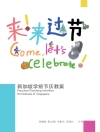In these games, the prize is success in school—and life.
Having good social skills doesn’t just affect classroom behavior—it’s the key to making learning stick. When students improve their self-regulation, social communication, and perspective-taking competencies, they are better prepared to challenge themselves academically, take on tough tasks, and collaborate with teachers and classmates to achieve real, lasting school success. And since these skills also improve life outside school, the benefits come full circle.
Designed for both explicit instruction and ‘learning by doing, ‘ this practical guide provides hands-on activities that are easily adapted into any curriculum and can be used in general education, special education, after-school settings, and in the home. The design of each game keeps kids engaged and motivated, while educators benefit from clear, thorough explanations that unpack the complexities of social learning. Other behind-the-scenes features include:
- Evidence-based, teacher-tested lessons
- Anecdotes and real-world examples
- Links to relevant research
- Expansion ideas for applying learned skills to broader situations
- Templates and reproducibles for easy implementation
This curated collection of activities puts social-learning theory into practice, helping even the most challenging children develop the social skills necessary for real success in school—and beyond.
Table of Content
List of Tables and Figures
Foreword by Kari Dunn Buron
Preface
Acknowledgments
About the Authors
INTRODUCTION: WHY SOCIAL LEARNING? WHY NOW?
What Is the Need for Social Learning?
What Is the Ideal Approach to Social Learning?
What Does Social Learning Look Like for Students?
Section 1: Teaching Self-Regulation
CHAPTER 1. Self-Regulation: The Basics
What Is Self-Regulation?
Functions of Behaviors and Interventions
Cognitive Skills
The Sensory System
CHAPTER 2. Lesson Plans for Teaching Self-Regulation
Table 2.1 Self-Regulation Lesson Plans Overview
Lesson 1: Suspend
Lesson 2: Taboo
Lesson 3: Tenzi
Lesson 4: Chill Out
Lesson 5: Flexibility Points
Lesson 6: Balloon Release
Lesson 7: Uno
Lesson 8: Personal Space Role-Play
Lesson 9: SKIP-BO
Lesson 10: Spit
Section 2: Teaching Social Communication
CHAPTER 3. Social Communication: The Basics
Relationship Types
Complexities of Social Communication
Nonverbal Communication
Teaching Conversation
CHAPTER 4. Lesson Plans for Teaching Social Communication
Table 4.1 Social Communication Lesson Plans Overview
Lesson 1: Hidden Message
Lesson 2: I Doubt It
Lesson 3: Follow-Up Questions
Lesson 4: Hedbanz
Lesson 5: Relationship Types Card Sort
Lesson 6: 5-Second Rule
Lesson 7: Hidden Objects
Lesson 8: Ball Toss Communication
Lesson 9: Word on the Street
Lesson 10: Beanbag Crash
Section 3: Teaching Perspective-Taking
CHAPTER 5. Perspective-Taking: The Basics
Theory of Mind
Social Cognitive Theory
Informal Assessment Tasks
The Intersection of Perspective-Taking and Social Communication
Hidden Curriculum
Levels of Friendship
Listen, Care, Change
Comic Strip Conversations and Social Stories
CHAPTER 6. Lesson Plans for Teaching Perspective-Taking
Table 6.1 Perspective-Taking Lesson Plans Overview
Lesson 1: Apples to Apples Personalized
Lesson 2: Celebrity
Lesson 3: Telephone in Pictures and Words
Lesson 4: Spoons
Lesson 5: Suspicion
Lesson 6: Picture Sequencing Activity
Lesson 7: Faceland
Lesson 8: Listen, Care, Change
Lesson 9: Guess My Gaze
Lesson 10: Bubble Talk
CONCLUSION
Resources
References
Index
About the author
The Stern Center for Language and Learning is a nonprofit organization dedicated to helping children and adults reach their academic, social, and professional goals. A leader in the field of education and learning, the Stern Center provides comprehensive evaluations and customized instruction for all learners, including those with learning disabilities, language disorders, social learning challenges, autism, attention deficit disorders, communication disorders, giftedness, and learning differences. Founded in 1983, the Stern Center also provides professional learning for educators. The Stern Center’s professional learning programs are offered through the Cynthia K. Hoehl Institute for Excellence (CKHIE), which was established in 2008 to bring research on evidence-based best practices to educators. It is a hub for structured literacy programs through our Orton Gillingham Institute, partnership with Wilson Language Systems, and our Comprehensive Reading Course for Educators online. CKHIE offers grants for professional learning for teachers and intensive instructional services for students. The Stern Center integrates individual and group social learning as well as communication services within its educational programs. Blanche Podhajski, Ph.D., founded the Stern Center with a mission to provide direct services for individuals of all ages, to deliver exceptional professional learning programs for educators, and to share research on evidence-based best practices. Dr. Podhajski teaches and consults with educators throughout the country and is a frequent presenter at regional and national conferences. She co-authored the Comprehensive Reading Course for Educators produced by Mind Play as well as Mind Play’s Teacher Companion. In addition, she is the co-author of Sounds Abound and Building Blocks for Literacy, a course that provides professionals who work with children from birth to age five strategies to promote robust language development and pre-literacy skills.












